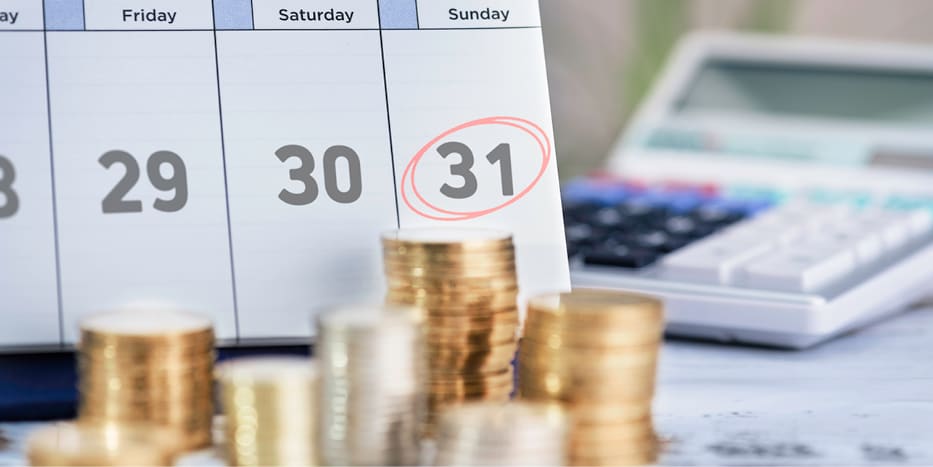6 Unique Ways to Collect Delinquent HOA Dues

Homeowners’ association (HOA) dues are essential to a community's success. Paid by homeowners, dues help ensure the neighborhood common areas and amenities remain well maintained and functional. However, when residents fall behind on dues and assessments, it can strain the HOA financially, affecting everyone in the community. To manage these situations, HOAs typically have a collections policy in place outlining the methods the association will use to recover delinquent fees.
Common collection methods include sending reminder notices, imposing late fees, and, ultimately, taking legal action, if necessary. Nonetheless, these traditional methods can be time-consuming and costly and strain the relationship between the HOA and its members. To avoid these negative effects, Roy Johnson, senior relationship manager for Associa Abstract Services and HOA Collection Services, offers unique ways for HOAs to collect delinquent dues from homeowners.
What Are Delinquent HOA Fees?
Delinquent HOA fees are those that have not been paid to the association on time. HOA fees average out to $200-$300 per month in most states and homeowners aren’t always able to make payments as scheduled. When dues have gone unpaid for an extended period and collection efforts have failed, HOA fees become delinquent. Always consult your governing documents to ensure your collection methods align with the rules and are enforceable.
HOAs charge fees for a variety of services. Learn more about them in our guide, ”HOA Fees: A Breakdown Of All Charges”!
6 Unique Ways to Collect Delinquent HOA Dues
Every homeowners’ association should have a plan in place to collect delinquent HOA fees. In addition to standard practices like sending notices and late payment reminders, consider these unconventional methods to get the job done:
1. Lease the property to collect rental income.
HOAs aren't landlords, but there are circumstances in which they can step into this role, such as:
· If the HOA is awarded the title to a property through a lien foreclosure sale, the association can lease the unit. When that happens, the rental income generated can then be used to offset the debt owed by a delinquent homeowner.
· The HOA can collect rental income directly from a tenant residing in a delinquent homeowner's property. In some states, the HOA has the authority to demand that the tenant pay rent directly to the association. If the tenant fails to comply, the HOA may even have the power to evict them. This method ensures that the association recovers some or all the overdue HOA fees without displacing the tenant unnecessarily.
· A court-appointed receiver might take control of a vacant unit as a last-resort option. A receiver is an employee of the court who is granted temporary possession of a property involved in a lawsuit. Receivers may have legal possession of a property but no ownership. Still, they can lease the property, perform repairs, and collect rent, and the income generated will go towards settling the delinquency. However, since the receiver has extensive control over the property, it might be risky for an HOA to take this approach.
2. Enlist the mortgage lender to pay.
Since mortgage lenders have a vested interest in their property, they may be willing to step in and cover overdue assessments to protect their investment. The amount paid by the lender is typically added to the homeowner’s mortgage loan, which the homeowner will have to repay eventually. While this approach might seem straightforward, it’s important to note that mortgage lenders are not obligated to pay HOA assessments. The HOA can send a demand for payment to the lender, but approval is uncertain. Despite this, it's a worthwhile option to explore, especially if the HOA is struggling to recover the delinquent amounts.
3. Have a new homeowner pay as part of a sale.
When a homeowner with delinquent dues decides to sell their property, the HOA can leverage this situation to recover the overdue fees. If there is a lien on the property due to unpaid assessments, the transaction might not proceed until the debt is settled. In many cases, a new homeowner will agree to pay the delinquent amount to clear any restrictions and facilitate the sale. This method provides an additional avenue for HOA collections without the need for the delinquent homeowner’s cooperation and helps maintain financial stability. Moreover, even if the new homeowner only pays a portion of the outstanding balance, it still alleviates some of the financial burden on the association.
Selling a home in an HOA requires reviewing documents and forms, including the HOA resale certificate. If you’re wondering, “What’s an HOA Resale Certificate?”, we have all the answers!

4. Use payment plans for increased flexibility.
When dealing with the collection of HOA assessments, offering flexible payment plans can help residents catch up on overdue fees without facing overwhelming financial burdens. Whether it’s a grace period or a structured repayment plan, allowing a reasonable amount of time for residents to pay can help the association recoup costs while maintaining a positive partnership with community members. Collaborate with your community manager to outline options for repayment. This demonstrates a willingness to work with residents to resolve delinquencies amicably.
5. Waive penalties to make payments easier.
Temporarily waiving penalties or interest for residents who promptly catch up on overdue payments can serve as a powerful incentive. This approach encourages homeowners to pay their delinquent assessments sooner rather than later, benefiting both the HOA and residents. By removing this additional financial burden, the HOA can also foster goodwill and cooperation within the community.
6. Make a request to homeowners for voluntary assessments.
Encouraging residents who are not delinquent to voluntarily contribute additional funds can help offset the shortfall caused by delinquencies. This strategy relies on the sense of community and collective responsibility among homeowners. By explaining what voluntary assessments can do for the community, the HOA can motivate residents to contribute. These contributions can be used to cover immediate expenses or to create a reserve fund for future delinquencies.
More Considerations for Collections
Collecting HOA assessments is crucial to maintaining the quality and functionality of a community. While traditional collection methods are necessary, exploring unique strategies can provide effective solutions without resorting to legal action. For more help with managing HOA collections, check out our “HOA Collections Quick Tips” ebook. In it, you’ll find details on creating a collection strategy that gets your association the funds that it needs.
FAQs
What are HOA dues?
HOA dues are regular payments made by homeowners to their homeowners' association. These fees cover the maintenance and upkeep of common areas and shared amenities, as well as other operational costs within the community.
What happens if you don't pay your HOA assessment?
If residents don’t pay their HOA assessments, they may incur late fees and penalties. Continued non-payment can lead to legal action, including property liens and potential foreclosure.
Can an HOA send you to collections?
Yes, an HOA can send delinquent assessments to a collection agency if homeowners fail to pay their dues. This can negatively impact the homeowner's credit score and lead to additional fees and legal complications.